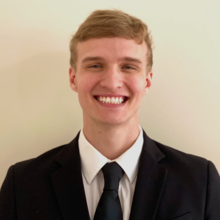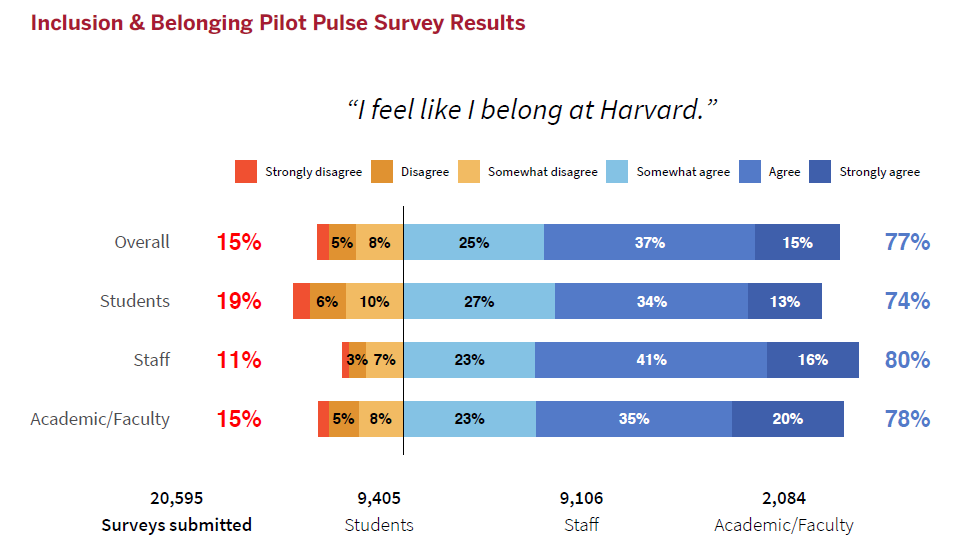Jett Crowdis, a graduate of Harvard Medical School, has turned a painful personal experience into a passion for medicine and cancer research. His journey began at Camp Kesem, where he served as a counselor for children impacted by cancer, and was profoundly influenced by a young boy who had just lost his father. This heart-wrenching encounter not only solidified Crowdis’s desire to pursue a medical career but also highlighted the vital human connection inherent in healthcare. Drawing from these experiences, he honed his skills in computational biology during his gap years, leading to significant contributions in cancer research. Now, as he embarks on his internal medicine residency at Yale New Haven Hospital, Crowdis is poised to help others while continuing to bridge the gap between science and compassionate patient care.
In today’s healthcare landscape, individuals like Jett Crowdis exemplify the transformative power of personal experiences in shaping future medical professionals. Through volunteer work and lab research, they uncover their commitment to understanding and addressing the complexities of diseases such as cancer. By engaging with communities affected by illness, aspiring doctors develop a deeper appreciation for the emotional and physical challenges patients face. Such experiences not only foster a sense of empathy but also propel innovative research efforts that contribute to advancements in treatment and care. With their sights set on specialties like internal medicine, new physicians like Crowdis are ready to make impactful strides in the world of medicine.
The Transformative Journey of Jett Crowdis
Jett Crowdis’s path to a medical career is an inspiring tale of personal connection and academic exploration. During his time at Harvard University, a significant moment occurred while he served as a camp counselor at Camp Kesem — a place dedicated to supporting children whose parents are battling cancer. It was here that Jett met a young boy grieving the recent loss of his father to pancreatic cancer. This encounter deeply influenced Crowdis’s career trajectory, igniting his passion for medicine and compassionate care as a response to human suffering.
The experience was not merely a fleeting moment; it was a spark that led Jett to recognize the profound impact medicine can have on individuals. Much like the personalized care he offered at Camp Kesem, his future aspirations in medicine revolve around understanding patients’ emotions and experiences, making it clear that his journey is not solely about science but also deeply rooted in humanity.
Crowdis’s time at Harvard has been marked by a relentless pursuit of knowledge and research, particularly within the realm of cancer science. After his graduation from Harvard College in 2019, he dedicated two gap years to enriching his experience in biomedical research, specifically focusing on pioneering techniques that leverage computational biology to advance cancer treatment. He aspires to build bridges between innovative research and effective patient care, embodying the philosophy that personal narratives are as crucial as clinical data in the realm of healthcare.
Exploring Cancer Research Through Personal Experiences
Cancer research poses numerous challenges and opportunities, and Jett Crowdis’s approach integrates his personal story with scientific inquiry. His tenure in the lab of Associate Professor Eliezer Van Allen at the Dana-Farber Cancer Institute allowed him to delve into meaningful projects, analyzing genomic data and exploring the molecular intricacies of cancer. Crowdis’s ability to blend his empathy gained from experiences at Camp Kesem with a robust understanding of medical research is a distinctive aspect of his career. “My favorite aspect of research is when I get to ask questions that no one else has asked,” he notes, highlighting his commitment to innovation in cancer research and care delivery.
Jett’s research on the Metastatic Prostate Cancer Project demonstrated not only the scientific potential of collaborative studies but also reflected a fundamental understanding that patient experience is integral to effective healthcare practices. By engaging patients as partners and including their narratives in the research process, Crowdis is breaking down barriers that often hinder treatment and care access, showcasing the synergy of science and compassion.
As Crowdis transitions into the next chapter of his professional life, the skills honed through his rich experiences in research and patient interaction will serve as a foundation for his residency in internal medicine. His understanding of cancer research will offer unique insights as he engages with diverse patients, fostering healing connections much like those cultivated at Camp Kesem. The importance of empathy in medicine becomes even more salient as he prepares to learn from patients’ stories while providing care.
The Role of Camp Kesem in Shaping Medical Aspirations
Camp Kesem has played a pivotal role in shaping Jett Crowdis’s aspirations and understanding of patient care. This national organization provides a supportive environment for children affected by a parent’s cancer, and its mission resonates closely with Crowdis’s values. His experiences as a counselor at Camp Kesem helped him develop emotional intelligence and empathetic communication skills, which are essential in the field of medicine. Listening to children express their grief and navigating their emotions not only affirmed his commitment to pursue a medical career but also informed his approach to patient interactions.
For Crowdis, the heart of medicine lies in understanding the human condition, particularly in traumatic circumstances like cancer. He has emphasized that this foundation of empathy will guide his practices as he moves into internal medicine. The lessons learned at Camp Kesem remain central to his mission, reflecting the belief that profound medical care necessitates an acknowledgment of the emotional and psychological burdens borne by patients.
Being a camp counselor extended beyond recreational activities; it was about fostering a genuine bond and becoming a source of support during difficult times. This principle is something that Jett carries into his medical training, understanding that every patient has a personal story that shapes their healthcare journey. He aims to create a similar safe space for his patients, inviting conversations that reveal their backgrounds, fears, and hopes, emphasizing the importance of holistic care within internal medicine.
Innovative Research Experiences in Internal Medicine
During his time at Harvard Medical School, Jett Crowdis embarked on a series of research experiences that uniquely prepare him for his residency in internal medicine. His involvement in computational biology not only enhanced his technical skills but also equipped him with a more profound understanding of patient-centric approaches in medicine. By merging his laboratory findings with patient narratives, he is set to contribute to a new model of thinking within the realm of internal medicine — one that prioritizes both rigorous scientific methodology and meaningful patient experiences.
Involvement in projects, such as those aimed at understanding cancer genomics, illustrates Crowdis’s commitment to exploring innovative solutions to complex healthcare challenges. The skills he honed in Van Allen’s lab foster an analytical mindset essential for a successful career in internal medicine, reinforcing the idea that scientific inquiry can lead to significant clinical advancements regarding patient care.
As Crowdis transitions to Yale New Haven Hospital for his residency, he is enthusiastic about applying his research experience directly to patient care. The interplay between patient care and innovative research fuels his passion for internal medicine, allowing him to connect the dots between lab findings and real-world applications that affect patients’ lives. He embodies an ideal blend of researcher and physician, striving to ensure that scientific advancements continuously inform and improve practices in patient care.
Future Aspirations in Internal Medicine
Jett Crowdis’s future aspirations in internal medicine reflect a deep commitment to advancing patient care through the integration of rigorous science and personal narratives. As he embarks on his residency, he is passionate about exploring how internal medicine can bridge the gap between complex medical science and the individual needs of patients. Crowdis recognizes that the future of medicine requires practitioners who are not only skilled clinicians but also compassionate listeners who can engage with patients on multiple levels, including their emotional and psychological experiences during treatment.
While still exploring how much research will feature in his career, Crowdis is certain that his background in cancer research and computational analysis will enrich his practice. He aims to contribute meaningfully to the field, potentially focusing on his interests in genomics and patient communication to better understand the underlying causes and treatments of various illnesses.
He envisions a thoughtful approach to medicine, where research informs clinical decisions while allowing for an environment that nurtures patient involvement and feedback. This perspective aligns with the evolving landscape of healthcare, which increasingly prioritizes tailored, patient-centered care plans. With aspirations grounded in his formative experiences and a robust academic foundation, Jett Crowdis is well-positioned to make a positive impact in internal medicine, advocating for both patients and innovative research practices.
Building Connections Through Medical Practice
Building connections with patients is at the core of Jett Crowdis’s philosophy as he advances in his medical career. Inspired by his time as a Camp Kesem counselor, he understands that medicine goes beyond clinical knowledge; it encompasses the ability to form meaningful relationships with patients. Crowdis recognizes that these connections can significantly on patients’ willingness to engage in their treatment plans and overall well-being. As he embarks on his residency, he is determined to create a supportive atmosphere where patients feel heard and valued, allowing for more impactful healthcare encounters.
In his practice, Jett aims to merge the technical competencies of internal medicine with the personal insights gained from his earlier experiences. He believes that establishing trust through open communication fosters collaboration between patients and healthcare providers, leading to more successful health outcomes. By dedicating time to understanding patients’ backgrounds and concerns, he positions himself to provide care that respects and acknowledges the complexities of each individual’s situation.
Moreover, Crowdis’s journey of personal experiences equips him with narratives that resonate with patients facing serious illnesses. By actively listening to patients and applying holistic methodologies, he aims to bridge the gap between scientific clinical practices and the human experiences that accompany illness. He seeks to enlist patients in their healthcare journeys, encouraging them to share their own stories and perspectives along the way, reaffirming that medicine is as much about relationships as it is about treatments.
Advancements in Patient-Centered Research
Jett Crowdis’s commitment to patient-centered research is paramount to his career aspirations within internal medicine. By emphasizing the integration of patient experiences into scientific research, he strives to champion a model of healthcare that treats individuals as active participants rather than passive recipients of care. His research endeavors, especially within the context of cancer genomics and patient partnerships, highlight a shift towards a collaborative approach in medical science.
Crowdis’s previous projects showcased that when patients contribute their narratives alongside medical data, it cultivates a holistic understanding of disease processes and effective treatments. By prioritizing this methodology, he aims to usher in a new era where patient experiences are valued and utilized as critical data points in medical research and practice, bringing to light the multifaceted nature of healing.
The implications of such patient-centered research extend beyond academia; they touch the very fabric of healthcare delivery. As Crowdis moves forward in his career, he intends to advocate for research frameworks that prioritize collaboration and dialogue between researchers and patients. This vision aligns with modern approaches to healthcare that recognize the importance of individual stories in shaping treatment paradigms and improving health outcomes, ultimately fostering a more inclusive and effective medical practice.
Integrating Technology in Medicine
As technology continues to evolve in the medical field, Jett Crowdis stands at the forefront of integrating these advancements into patient care. His background in computational biology equips him with the skills to leverage technology to enhance the accuracy and efficiency of medical research and practice. Throughout his studies, he has discovered that embracing digital tools and data analytics can significantly impact patient outcomes, making healthcare more adaptable and personalized.
Crowdis believes that utilizing technology can not only streamline processes but also improve communication and accessibility for patients. He envisions a future where innovations such as telemedicine, AI diagnostics, and genomic data analysis are seamlessly integrated into routine care, thus expanding the reach of effective medical interventions to a broader patient demographic.
Moreover, Crowdis is keen on fostering collaborations between technology developers and healthcare providers to create solutions that address both clinical needs and patient experiences. With his medical training coupled with technical expertise, he aims to become a pioneer in identifying gaps in patient care that can be filled with technological advancements. By placing emphasis on the synergy between technology and patient narratives, Crowdis seeks to cultivate a healthcare environment that is not only driven by data and research but is also compassionate and responsive.
Frequently Asked Questions
What inspired Jett Crowdis to pursue a medical career after his experience at Camp Kesem?
Jett Crowdis’s journey towards a medical career was profoundly influenced by his time as a camp counselor at Camp Kesem, where he interacted with children whose parents had cancer. His meeting with a 9-year-old boy who had recently lost his father to pancreatic cancer highlighted the emotional and psychological aspects of cancer care, leading him to realize that he wanted to combine his scientific interests with patient support in medicine.
How did Jett Crowdis’s time at Harvard Medical School shape his approach to cancer research?
During his time at Harvard Medical School, Jett Crowdis focused on integrating computational biology into cancer research, particularly under the guidance of Associate Professor Eliezer Van Allen. His work involved analyzing genomic data to explore cancer’s molecular origins and treatment resistance, allowing him to ask unique research questions and enhance his knowledge of patient-centered cancer therapy.
What role did Jett Crowdis’s coding skills play in his medical research?
Jett Crowdis learned coding, specifically Python, to enhance his ability to analyze complex research data while working in a lab during his gap years. This skill set proved invaluable in his contributions to cancer research projects, enabling him to effectively analyze genomic data and contribute meaningfully to groundbreaking studies, including his significant work on the Metastatic Prostate Cancer Project.
What is the significance of the Metastatic Prostate Cancer Project in Jett Crowdis’s research career?
The Metastatic Prostate Cancer Project was a pivotal part of Jett Crowdis’s research career as it emphasized the importance of participatory research. As the first author of a Cell Genomics paper on this project, Crowdis highlighted how engaging patients as partners in sharing their biological samples and clinical experiences can improve cancer treatment strategies and facilitate better care.
How did Jett Crowdis’s experience at Camp Kesem influence his internal medicine residency choice?
Jett Crowdis’s experience as a counselor at Camp Kesem instilled in him a deep appreciation for patient interaction and empathetic care. This passion for direct patient engagement ultimately influenced his choice to specialize in internal medicine, allowing him to have meaningful conversations and build relationships with patients similar to those he cherished during his time at camp.
What unique combination of skills does Jett Crowdis bring to his medical career?
Jett Crowdis possesses a unique combination of critical thinking, research expertise in cancer genomics, and a compassionate approach to patient care, shaped by his experiences both at Camp Kesem and in various research labs. His ability to blend scientific inquiry with empathetic patient interactions sets him apart in his internal medicine residency.
How can Jett Crowdis’s story inspire others interested in a medical career?
Jett Crowdis’s journey demonstrates how personal experiences with grief and compassion can inspire a commitment to a medical career, particularly in fields like cancer research and patient care. His story highlights the importance of human connection in healthcare and encourages aspiring medical professionals to seek opportunities for impactful patient interactions.
| Key Point | Details |
|---|---|
| Background | Jett Crowdis is a Harvard Medical School graduate with a background in computational biology and a passion for helping others. |
| Influence of Camp Kesem | Crowdis served as a camp counselor at a camp for children whose parents have cancer, which profoundly impacted his career choice. |
| Research Interests | He enjoys asking unique questions in research, particularly in cancer studies and computational biology. |
| Career Path | Crowdis took a gap year to work in cancer research, leading to co-authorship on a significant genomics paper. |
| Future Plans | He will begin a residency in internal medicine at Yale New Haven Hospital, focusing on patient interaction. |
Summary
Jett Crowdis has demonstrated an impressive journey through his medical education, marked by compassion and a commitment to scientific inquiry. His experiences as a camp counselor opened his eyes to the emotional aspects of medicine, guiding his career path in a way that seamlessly merges his love for science with a dedication to patient care. As he steps into his residency in internal medicine, Crowdis is poised to make meaningful contributions to the field, showcasing a unique blend of research acumen and personal engagement with patients.




